Stepping Lightly into Self-Care: Your Expansive Guide to the Best Zero-Waste Personal Care Swaps for Beginners
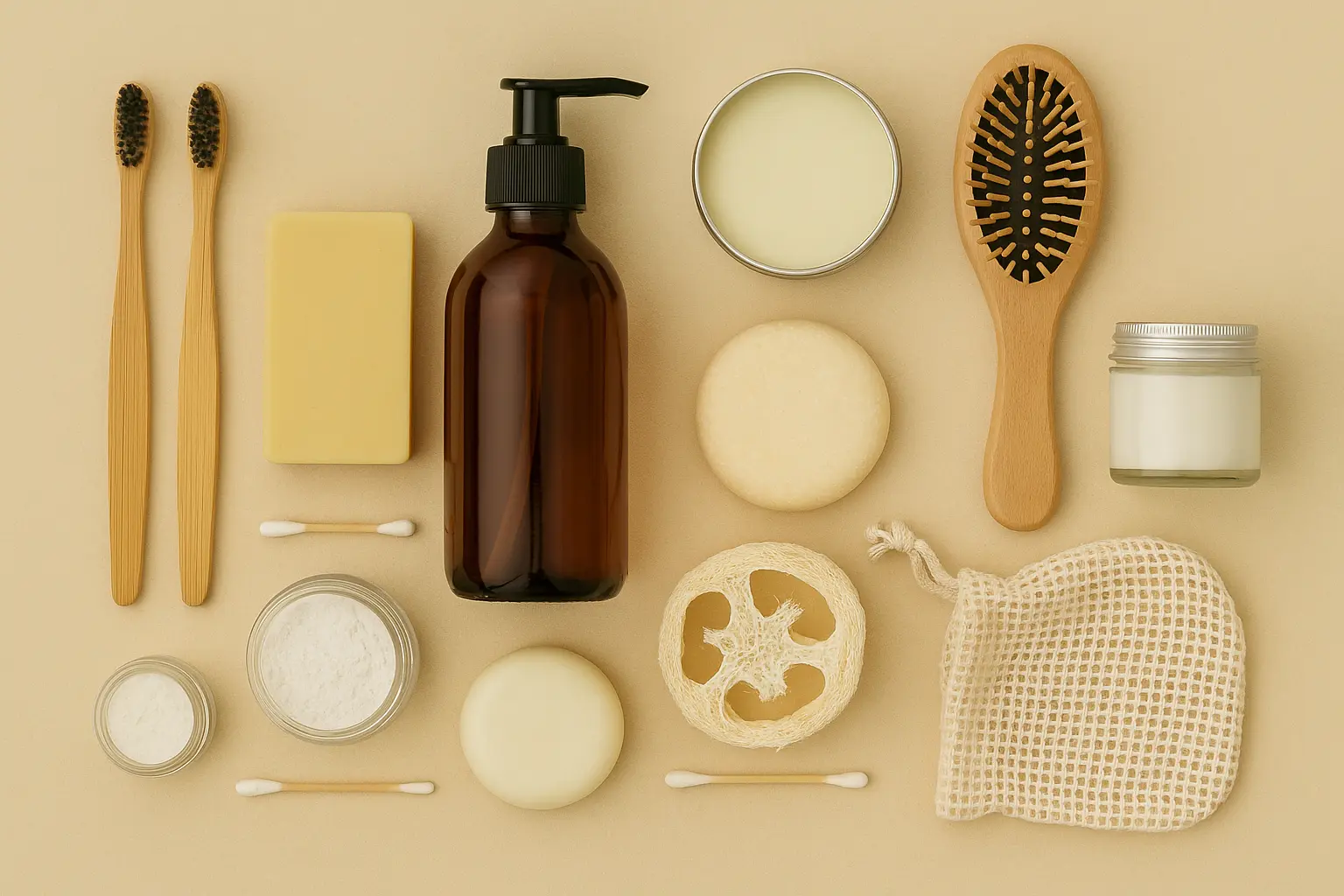
The desire to cultivate a more sustainable lifestyle often begins with a growing awareness of the environmental impact of our daily choices. The bathroom, a sanctuary dedicated to personal care and hygiene, can unfortunately be a significant source of single-use plastics and products laden with excessive packaging. The sheer volume of discarded bottles, tubes, and disposable items can feel overwhelming when embarking on a zero-waste journey. However, the transition to a more eco-conscious personal care routine doesn't necessitate a sudden and drastic upheaval of your habits. Instead, it can unfold gracefully, one simple and manageable swap at a time.
This expansive exploration serves as your comprehensive and encouraging guide to the very best zero-waste personal care swaps tailored specifically for beginners. We will delve deeply into practical and readily accessible alternatives to common disposable items, offering detailed insights that aim to thoroughly educate, genuinely encourage, and deeply inspire you to take those initial, confident strides towards a more sustainable and mindful self-care regimen. Remember, every single swap, no matter how small it may seem in isolation, contributes to a larger positive impact, and this journey is ultimately about continuous progress, not the elusive pursuit of instant perfection.
Building Your Sustainable Foundation: Essential Zero-Waste Swaps for Everyday Rituals
Let us begin by examining the foundational elements of most personal care routines – the items we reach for daily, often without a second thought about their eventual fate in a landfill. These seemingly small changes can lay a robust groundwork for a more sustainable approach to self-care.
-
The Empowering Bar Soap Revolution: Cleansing Without the Plastic Tide: One of the most straightforward yet profoundly impactful swaps you can make is transitioning from plastic bottles of liquid hand soap and body wash back to the timeless simplicity of bar soap. This single change immediately eliminates the need for yet another plastic container. Furthermore, the burgeoning market of artisanal and eco-conscious soap makers offers an array of beautifully crafted bars formulated with natural ingredients and often packaged with minimal, biodegradable materials such as simple paper bands or even sold completely "naked." Explore the diverse world of scents and formulations, from invigorating citrus to soothing lavender, to discover bars that truly delight your senses. To ensure a seamless and enjoyable transition, consider investing in a stylish and functional soap dish crafted from sustainable materials like bamboo, naturally finished wood, or durable ceramic.
-
Shampoo and Conditioner Bars: Nourishing Your Hair, Not the Landfills: Mirroring the issue with liquid soaps, shampoo and conditioner bottles contribute significantly to the plastic waste stream. Solid shampoo and conditioner bars present a remarkable zero-waste alternative that is rapidly gaining popularity for its effectiveness and environmental responsibility. These concentrated bars, often packed with beneficial natural ingredients, lather beautifully and cleanse and condition your hair just as effectively as their liquid counterparts, all without the accompanying plastic bottle. Moreover, these solid bars are incredibly travel-friendly, eliminating the risk of spills in your luggage, and often boast a longer lifespan than their liquid equivalents, making them a cost-effective choice as well. Seek out bars specifically formulated for your hair type – whether oily, dry, fine, or thick – to ensure optimal results and a truly satisfying hair care experience.
-
The Bamboo Toothbrush Transformation: A Sustainable Smile: The sheer volume of plastic toothbrushes discarded globally each year paints a stark picture of unsustainable habits. A remarkably simple and readily accessible swap is transitioning to a toothbrush with a handle crafted from sustainably sourced bamboo. Bamboo is a fast-growing, renewable resource that requires minimal water and pesticides to cultivate. While the bristles are often still made from nylon (though an increasing number of brands are exploring plant-based bristle options), the significant reduction in plastic compared to a fully plastic toothbrush is undeniable. Look for bamboo toothbrushes with handles that are either fully compostable or have replaceable heads, further minimizing waste over time.
-
Toothpaste Tabs and Powder: Reimagining Your Oral Hygiene Ritual: Traditional toothpaste tubes, typically constructed from a complex blend of plastics and aluminum, pose a significant challenge to recycling infrastructure. Zero-waste alternatives such as toothpaste tablets or tooth powder offer an innovative and effective solution. These formulations often come packaged in reusable glass jars, recyclable aluminum tins, or even compostable pouches. Toothpaste tablets are activated by simply popping one in your mouth and chewing to create a refreshing paste, while tooth powder is applied by dipping a wet toothbrush into the powder. Both options are just as effective at cleaning your teeth, freshening your breath, and promoting oral hygiene, all while eliminating the problematic plastic tube. Explore different flavors and formulations to find an option that suits your taste and needs.
Elevating Your Routine: Sustainable Swaps for Specific Self-Care Practices##
Once you have established a solid foundation with these everyday essentials, you can confidently explore zero-waste alternatives for more specific aspects of your personal care routine, further minimizing your environmental impact.
-
Reusable Cotton Rounds: A Gentle Touch for You and the Planet: Disposable cotton pads and makeup wipes contribute a surprising amount of waste to landfills. Investing in a set of soft and durable reusable cotton rounds, crafted from materials like organic cotton, bamboo, or hemp, offers a luxurious and sustainable alternative. Simply use them to remove makeup, apply toner, or cleanse your face, and then toss them into a small mesh laundry bag to be washed alongside your regular laundry. These reusable rounds become even softer with each wash and will undoubtedly save you money over time while significantly reducing your contribution to landfill waste.
-
The Timeless Safety Razor: A Smooth, Sustainable Shave: Disposable plastic razors, with their short lifespan and non-recyclable construction, are a significant source of plastic waste in the bathroom. Switching to a classic safety razor with replaceable metal blades is a sophisticated and highly effective zero-waste solution for shaving. While there might be a slight learning curve involved in mastering the technique, safety razors provide an incredibly close and smooth shave with the only waste generated being the fully recyclable metal blade. Pair your safety razor with a high-quality natural shaving soap or cream that comes in minimal or zero packaging for a truly luxurious and sustainable shaving ritual.
-
Natural Deodorant in Sustainable Packaging: Staying Fresh, Responsibly: Many conventional deodorants and antiperspirants are encased in plastic containers that are often difficult to recycle. Fortunately, a thriving market of effective natural deodorants offers a sustainable solution. Look for options packaged in biodegradable cardboard tubes, refillable containers made from glass or aluminum, or even solid deodorant bars that come with minimal wrapping. Explore formulations with natural ingredients like baking soda, arrowroot powder, and essential oils to find a scent and efficacy that keeps you feeling fresh and confident throughout the day, without the plastic waste.
-
Menstrual Cups and Cloth Pads: Embracing Your Cycle with Sustainability: For individuals who menstruate, single-use pads and tampons represent a substantial and persistent source of waste. Reusable menstrual cups, typically made from medical-grade silicone, and washable cloth pads offer highly effective, comfortable, and environmentally responsible alternatives. While the initial investment might seem higher than disposable products, menstrual cups and cloth pads can last for many years with proper care, resulting in significant long-term cost savings and a dramatic reduction in your personal contribution to landfill waste.
The Ongoing Journey: Embracing Progress and Finding Your Sustainable Rhythm
It is crucial to reiterate that transitioning to a zero-waste personal care routine is a personal journey, characterized by continuous progress rather than the immediate attainment of absolute perfection. Do not feel overwhelmed by the prospect of replacing every disposable item at once. Begin with one or two swaps that resonate most with your current lifestyle and gradually incorporate more sustainable alternatives as your existing products run out and as you become more comfortable with the process. Remember that every conscious choice, every single swap you make, has a positive impact on the environment, and the ultimate goal is to cultivate a more mindful and intentional approach to self-care that aligns with your values.
Embracing these beginner-friendly zero-waste personal care swaps is a meaningful and empowering way to reduce your environmental footprint while continuing to prioritize your well-being. It is about making conscious decisions that reflect your commitment to a more sustainable future and discovering the often-surprising effectiveness, cost-savings, and inherent satisfaction that come with these mindful alternatives. As you seamlessly integrate these swaps into your daily routine, you will not only be minimizing waste but also cultivating a deeper connection with a more intentional and environmentally responsible way of living.
Related Blogs
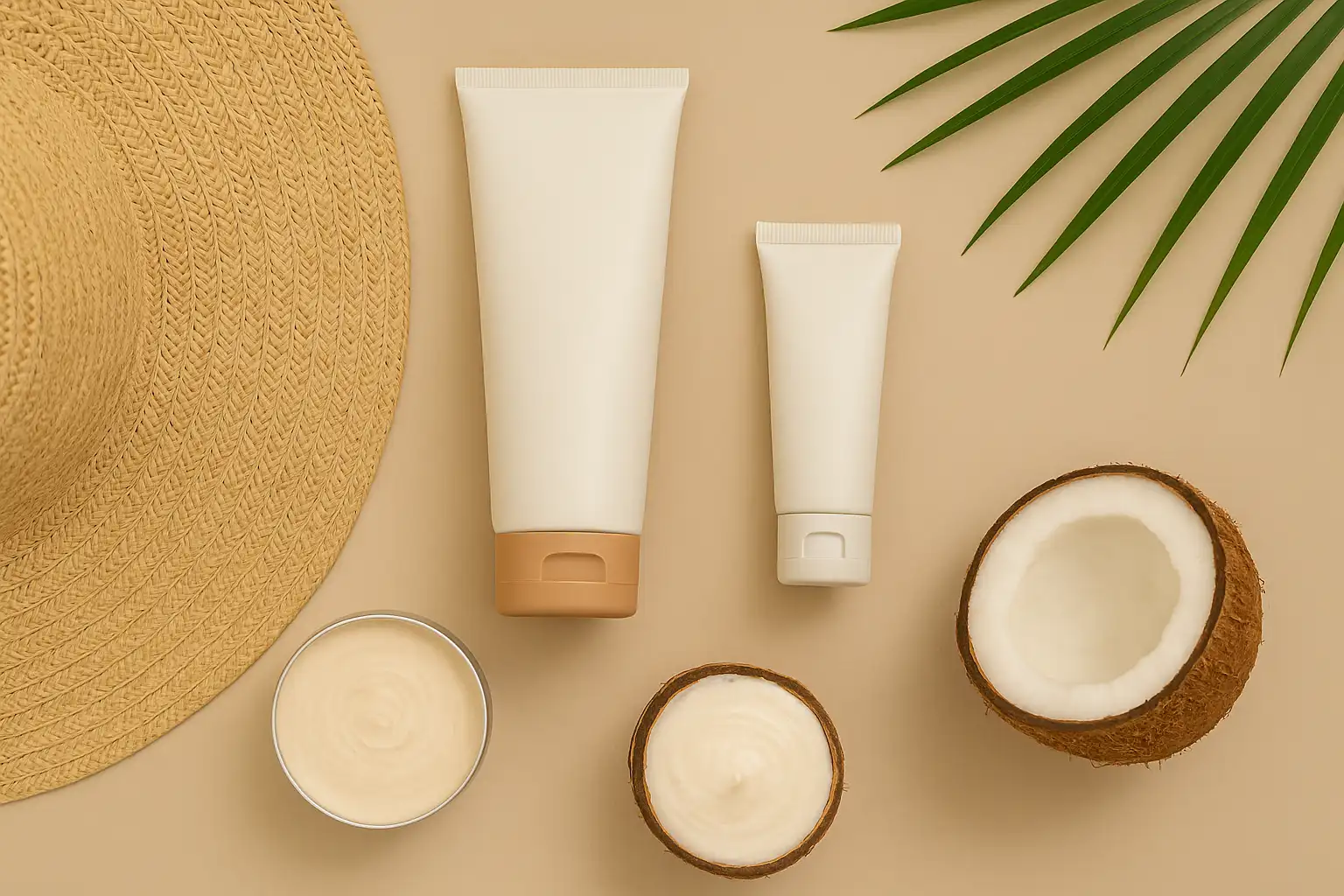
Shielding Your Skin, Protecting Our Oceans: The Essential Guide to Clean, Reef-Safe Sunscreens
Insights on clean sunscreens that don’t harm coral reefs in a sustainable way.
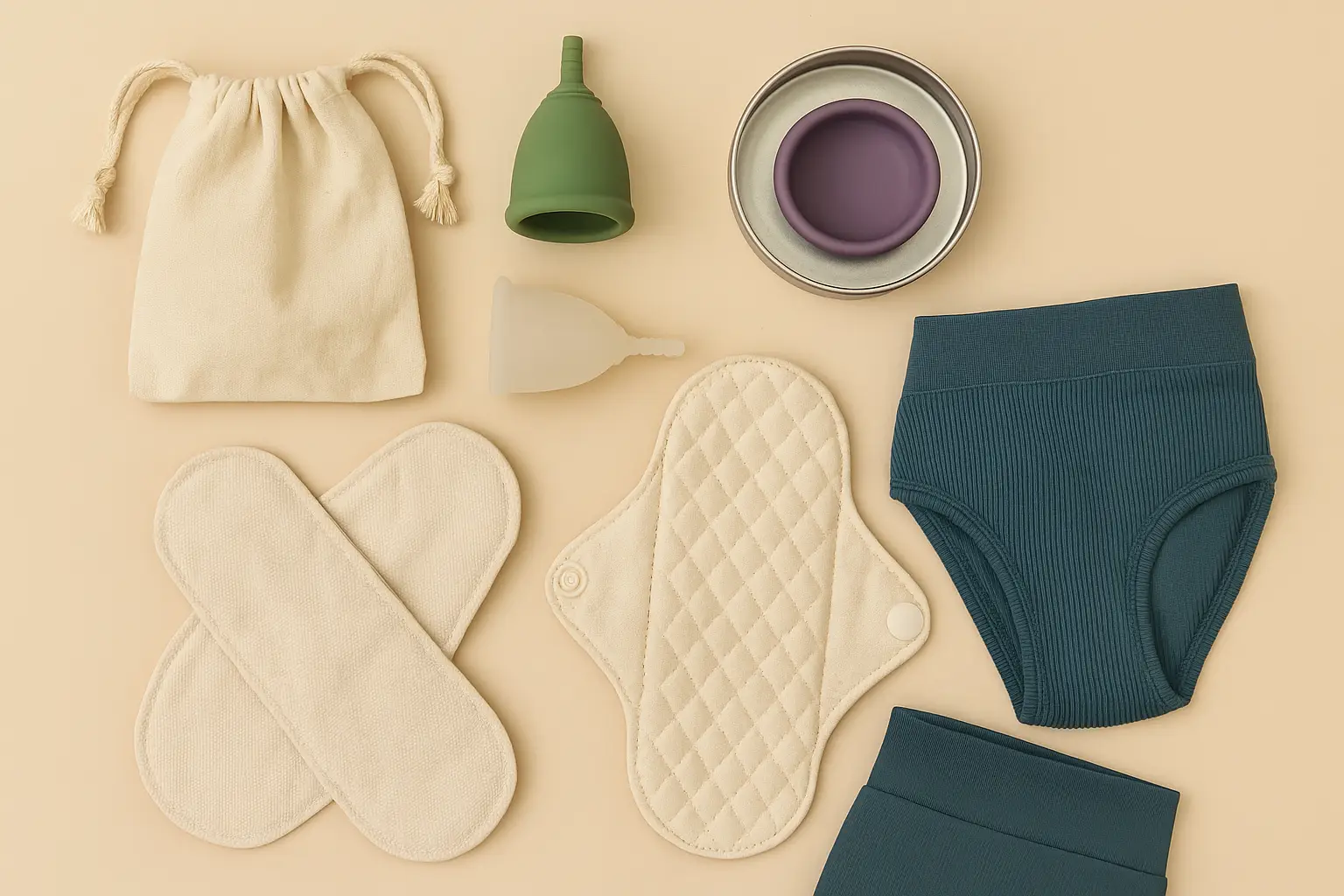
A Guide to Eco-Conscious Period Products
Insights on eco-conscious period products in a sustainable way.
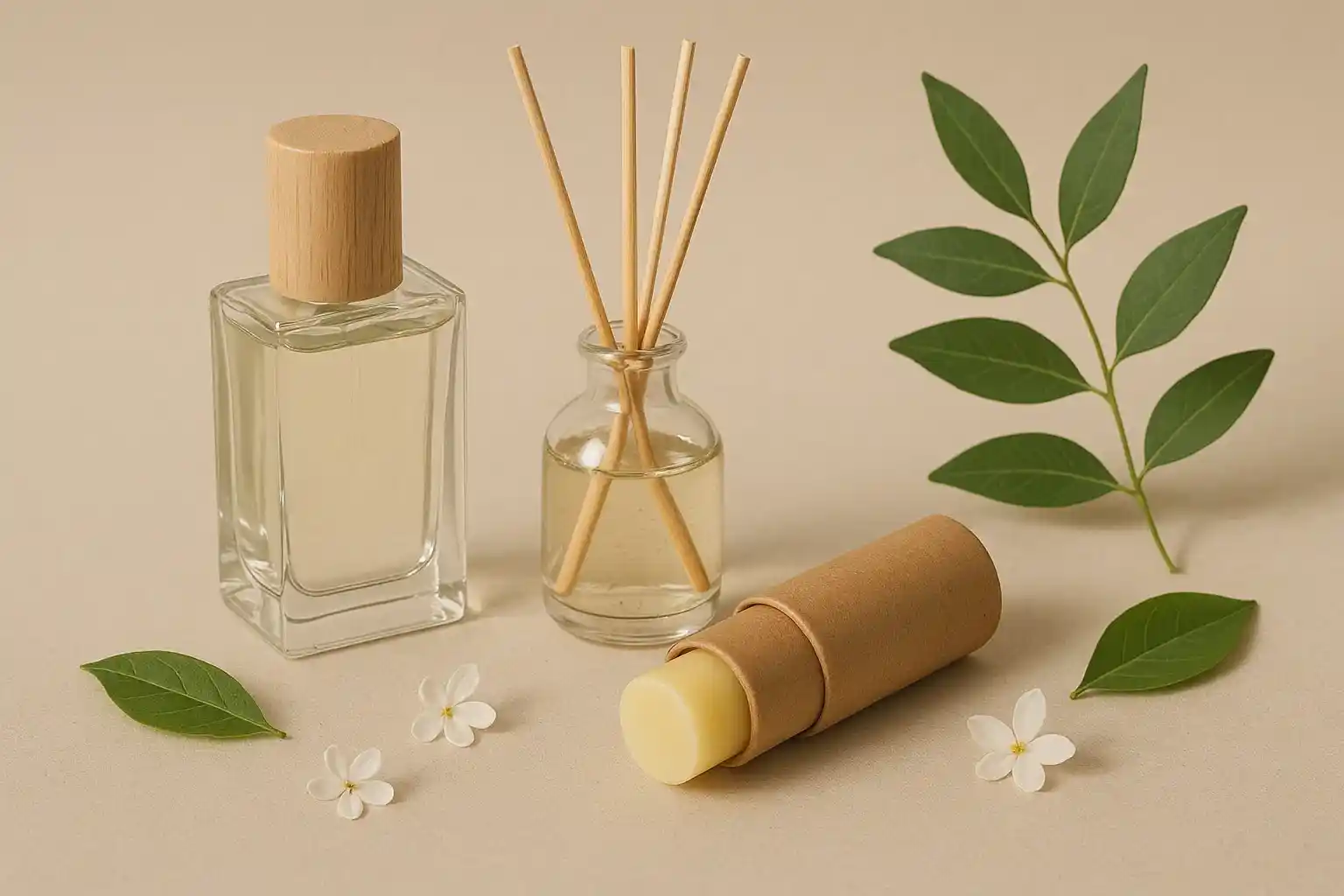
Scenting Sustainably: Choosing Eco-Friendly Alternatives to Perfume in Plastic Atomizers
Opt for solid perfumes, refillable glass bottles, or essential oil blends for fragrance without microplastics.
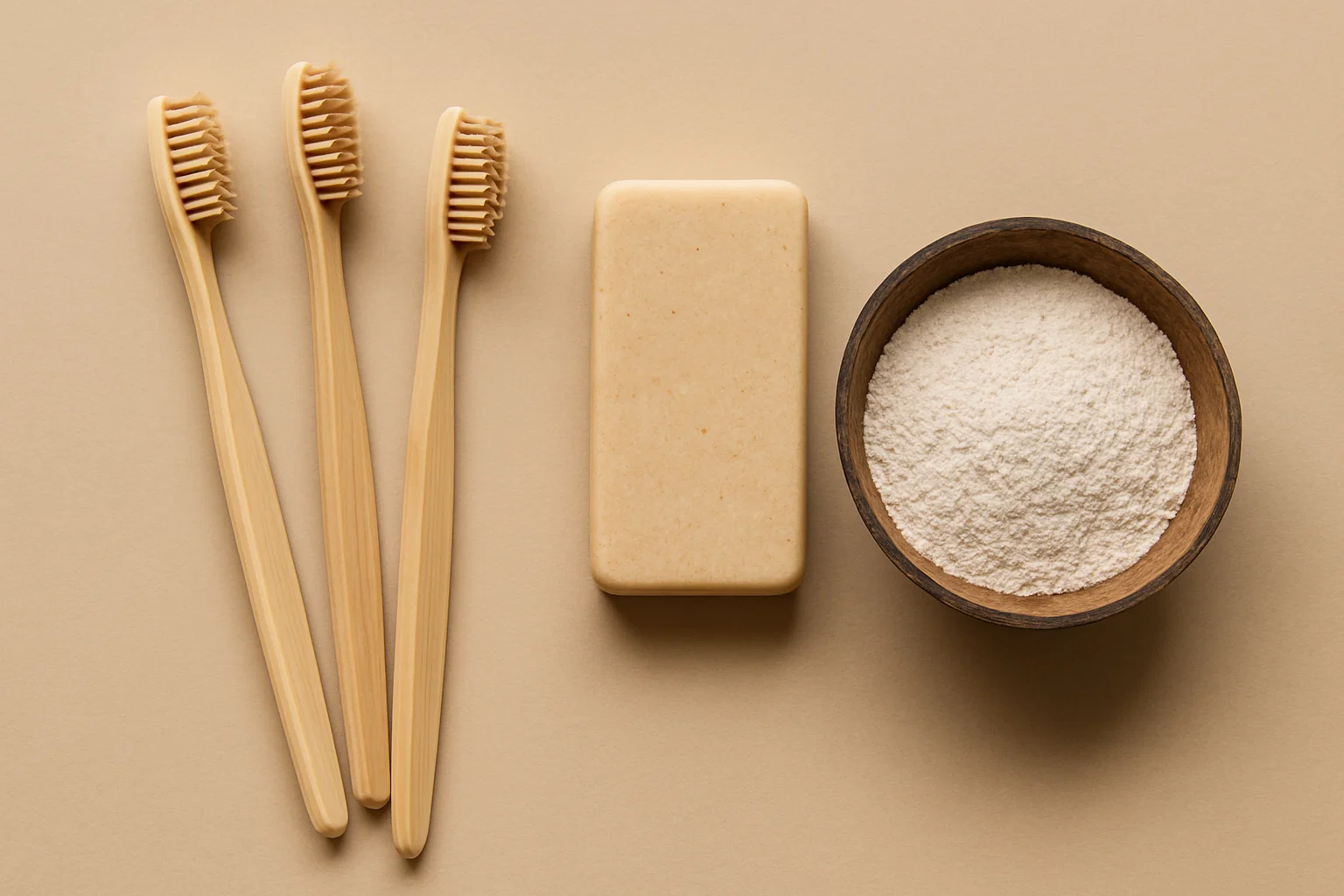
Smile Sustainably: Your Guide to Eco-Friendly Alternatives to Plastic Toothbrushes
Choose bamboo toothbrushes, recyclable heads, or miswak sticks for plastic-free dental care.
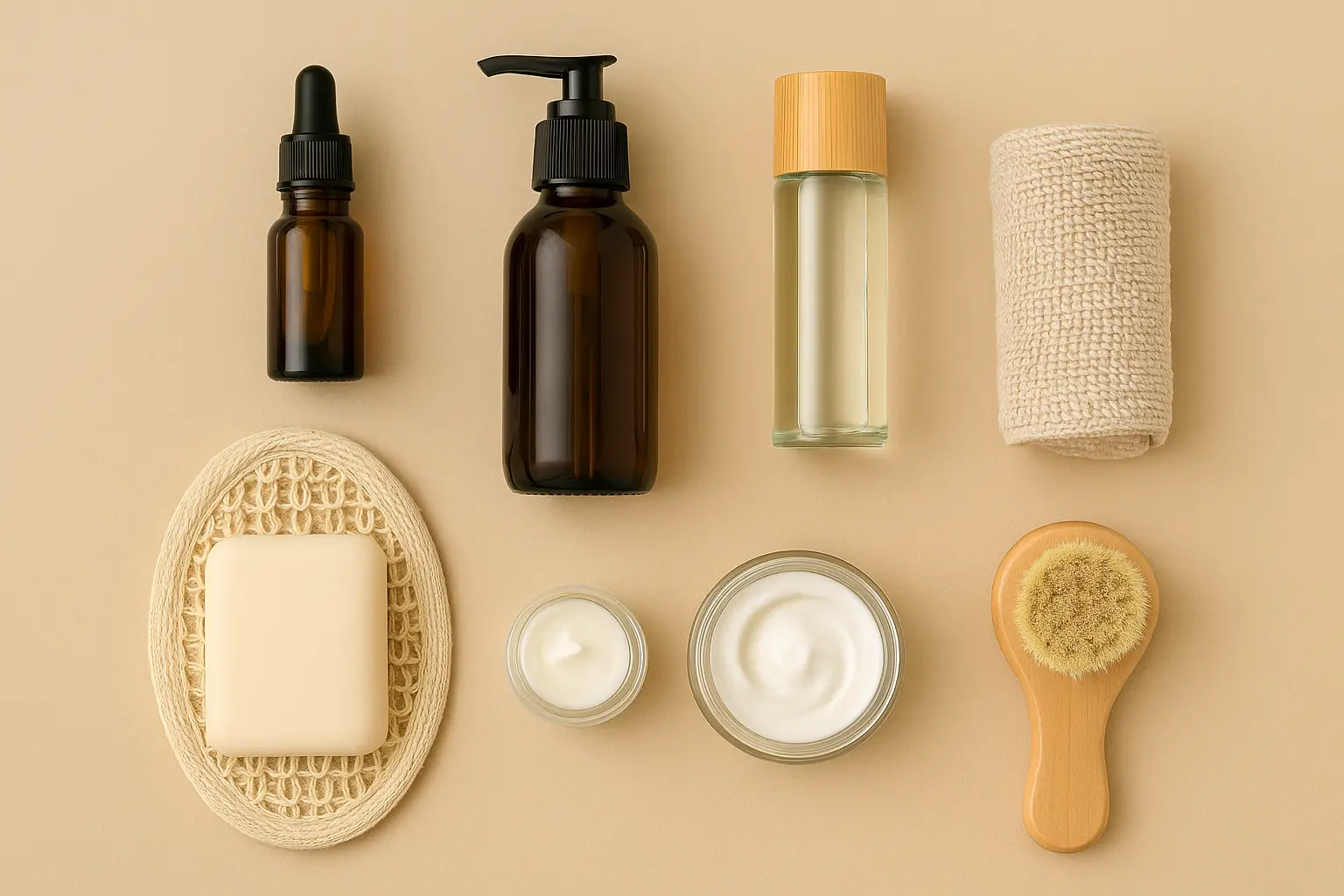
Uncomplicating Your Glow: Your Guide to Building a Minimalist Skincare Routine
Practical advice and actionable tips for how to build a minimalist skincare routine.
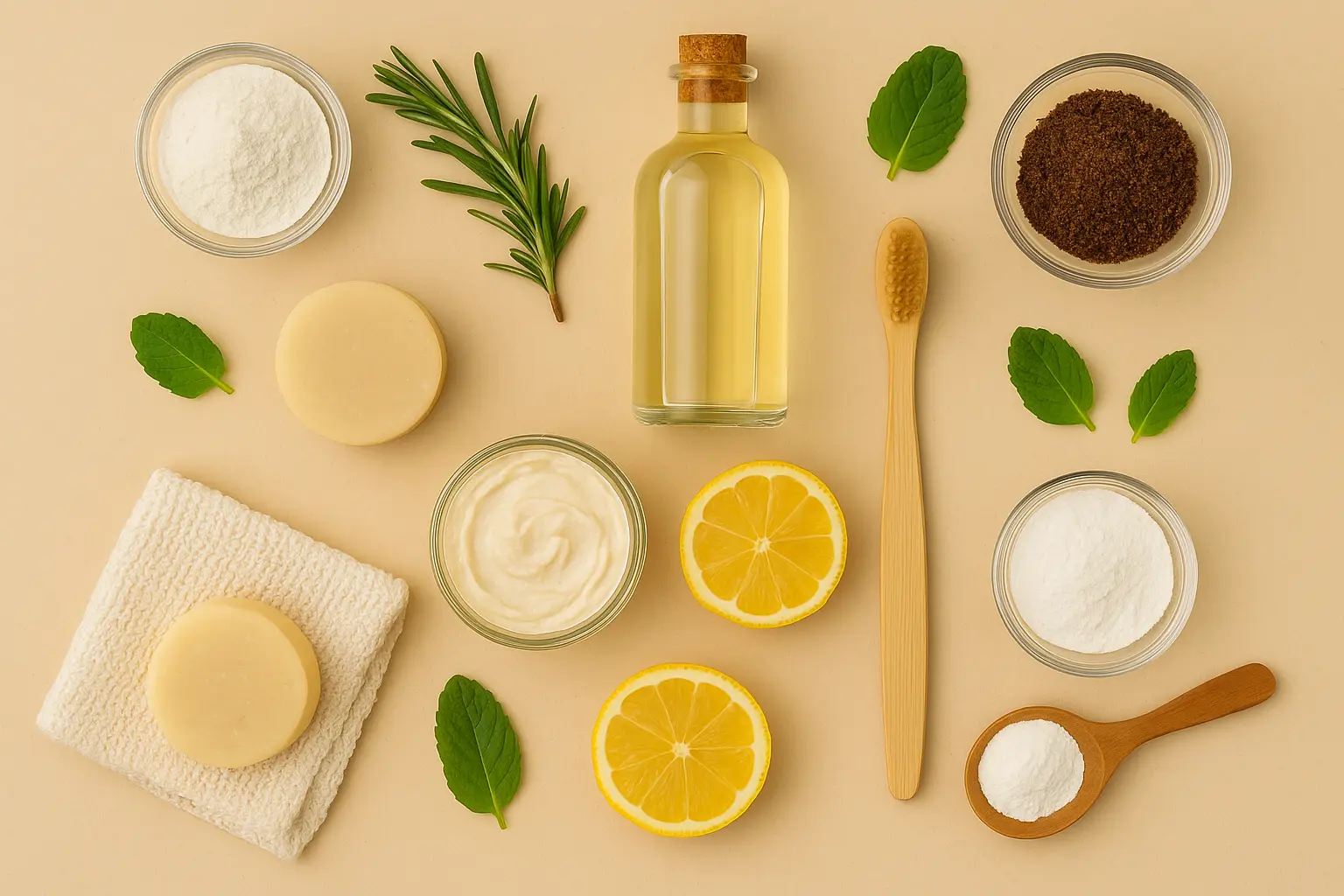
Unleash Your Inner Alchemist: Crafting Your Own Natural Toothpaste and Shampoo
Practical advice and actionable tips for how to diy your own natural toothpaste or shampoo.
Stay in the Loop
Get tips and insights tailored to your interests — no spam, just sustainability.